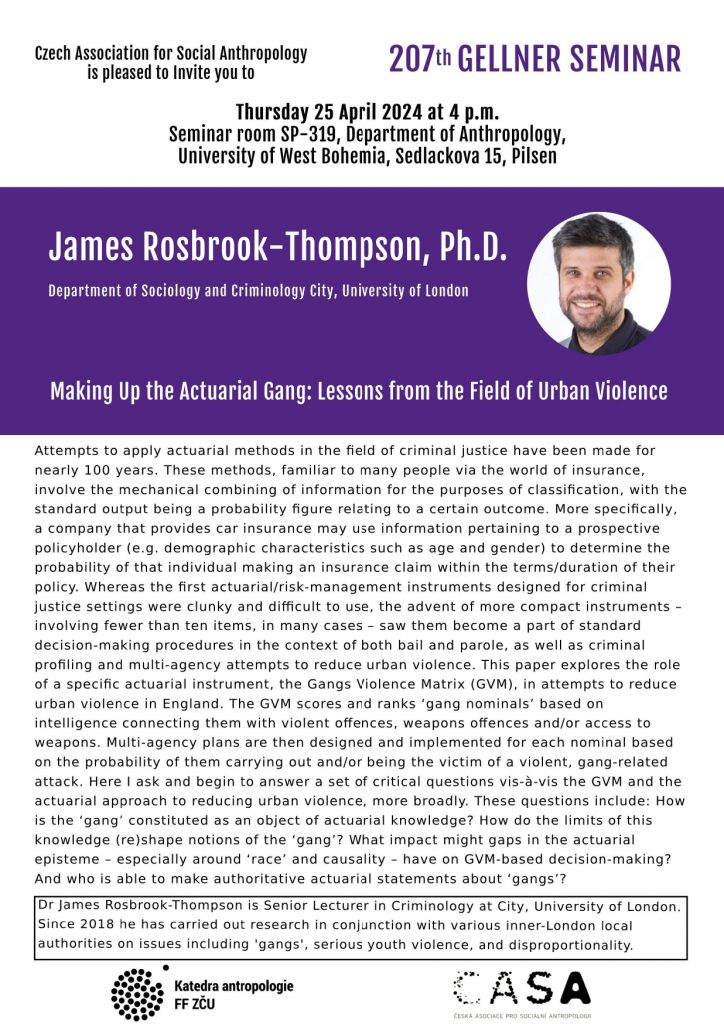
Abstrakt
Attempts to apply actuarial methods in the field of criminal justice have been made for nearly 100 years. These methods, familiar to many people via the world of insurance, involve the mechanical combining of information for the purposes of classification, with the standard output being a probability figure relating to a certain outcome. More specifically, a company that provides car insurance may use information pertaining to a prospective policyholder (e.g. demographic characteristics such as age and gender) to determine the probability of that individual making an insurance claim within the terms/duration of their policy. Whereas the first actuarial/risk-management instruments designed for criminal justice settings were clunky and difficult to use, the advent of more compact instruments – involving fewer than ten items, in many cases – saw them become a part of standard decision-making procedures in the context of both bail and parole, as well as criminal profiling and multi-agency attempts to reduce urban violence. This paper explores the role of a specific actuarial instrument, the Gangs Violence Matrix (GVM), in attempts to reduce urban violence in England. The GVM scores and ranks ‘gang nominals’ based on intelligence connecting them with violent offences, weapons offences and/or access to weapons. Multi-agency plans are then designed and implemented for each nominal based on the probability of them carrying out and/or being the victim of a violent, gang-related attack. Here I ask and begin to answer a set of critical questions vis-à-vis the GVM and the actuarial approach to reducing urban violence, more broadly. These questions include: How is the ‘gang’ constituted as an object of actuarial knowledge? How do the limits of this knowledge (re)shape notions of the ‘gang’? What impact might gaps in the actuarial episteme – especially around ‘race’ and causality – have on GVM-based decision-making? And who is able to make authoritative actuarial statements about ‘gangs’?
Bio
Dr James Rosbrook-Thompson is Senior Lecturer in Criminology at City, University of London. Since 2018 he has carried out research in conjunction with various inner-London local authorities on issues including ‚gangs‘, serious youth violence, and disproportionality.